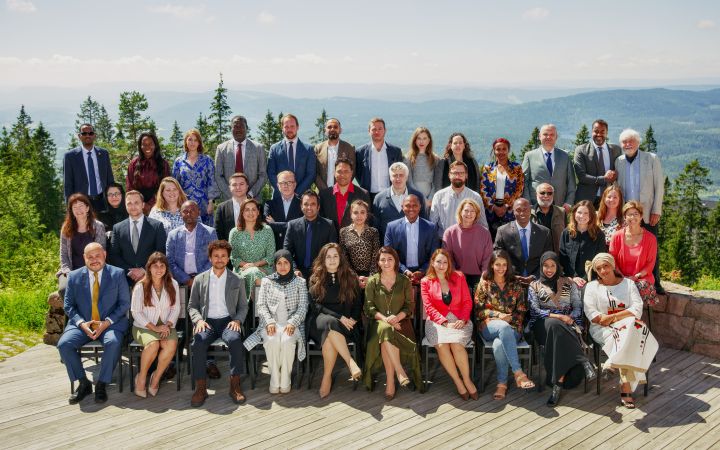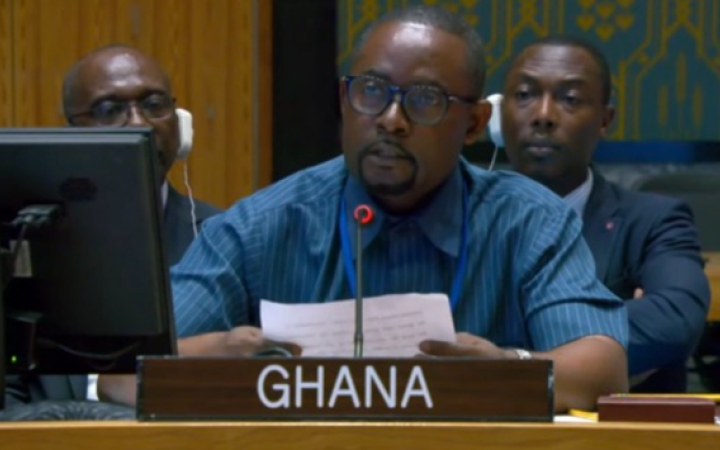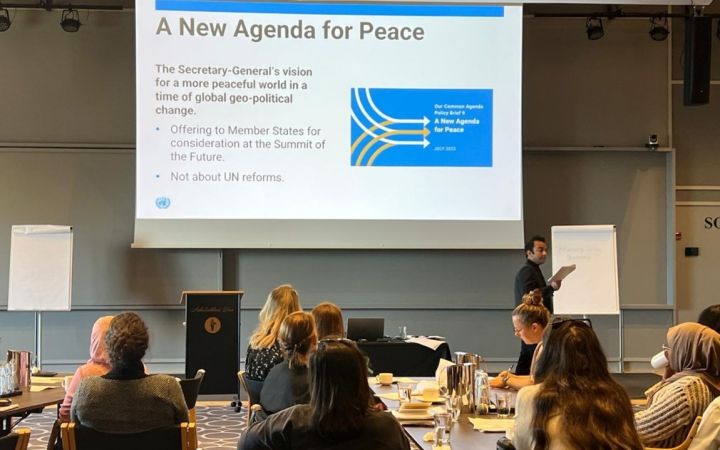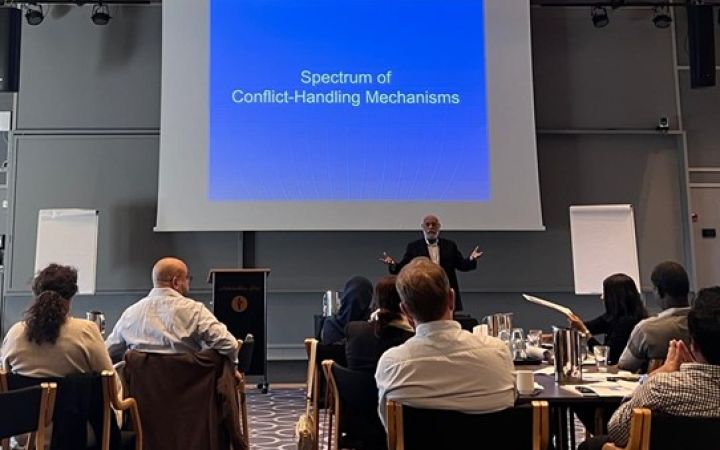UNITAR Fellowship Programme in Peacemaking and Preventive Diplomacy
The United Nations, Member States and regional organizations need female and male officials and staff well-versed in the key skills of analyzing root causes of conflict, listening deeply, seeking to understand the perspectives, needs and concerns of the parties, and engaging in constructive communication and mutually beneficial negotiation, mediation and reconciliation processes – all vital to the realization of Article 33 of the UN Charter on the pacific settlement of disputes. The UNITAR Fellowship Programme in Peacemaking and Preventive Diplomacy is conducted each year for precisely this purpose. The Secretary-General has placed prevention at the heart of his two mandates. Prevention and mediation feature prominently in the New Agenda for Peace and in the Pact for the Future to contribute to more peaceful, just and inclusive societies.
Charles Osei-Mensah served as Minister Plenipotentiary, Counter-Terrorism at the Permanent Mission of Ghana to the United Nations when he applied to the Programme:
My decision to participate in the UNITAR Fellowship Programme in Peacemaking and Preventive Diplomacy was motivated by both my professional background and my aspirations to contribute to global peace efforts. With a solid foundation in counterterrorism, I have developed valuable insights into the complexities of security threats, conflict prevention, and fostering cooperation among various actors. I recognized that participating in this programme would present an unparalleled opportunity to deepen my understanding of peacemaking and preventive diplomacy.
In the 2024 Fellowship Programme - the 31st edition - thirty-nine senior and mid-level female and male Fellows from around the world took part in Norway, including three Ambassadors from Africa, Europe and the Middle East. Fifty-one per cent of Fellows were women from peace missions, UN Headquarters, Departments and field offices, regional organizations (African Union, League of Arab States, OSCE) and from Ministries of Foreign Affairs around the world. Male Fellows took part from regional organizations (the Commonwealth, the Organization of Islamic Cooperation, OSCE) from UN Headquarters and peace and field missions, from the Executive Office of the Secretary-General, the Departments of Political and Peacebuilding Affairs and Peace Operations, from the Peacebuilding Support Office, OCHA, OHCHR and UNHCR including the Regional Directors in Africa, and from Ministries of Foreign Affairs around the world.
The programme enabled me to enhance my knowledge of conflict resolution strategies and diplomatic approaches, further equipping me to contribute to addressing the pressing security challenges faced by the West Africa sub-region, where I come from. It also allowed me to refine my skills in promoting sustainable peace and stability, while bridging the gap between counterterrorism and broader peacebuilding initiatives. Through the fellowship, I sought to expand my expertise and contribute meaningfully to advancing innovative solutions to intricate security challenges. The knowledge and experience gained from this programme have significantly enriched my perspective and reinforced my commitment to fostering lasting peace.
The UNITAR Fellowship Programme in Peacemaking and Preventive Diplomacy equipped me with transformative skills and knowledge that have shaped my professional journey in profound ways. Although my current portfolio at the Ghana High Commission in Ottawa, Canada, focuses on trade and investment relations, the principles and tools I gained during the programme have transcended their immediate application to the field of security and diplomacy.
The programme’s immersive sessions on negotiation theory, mediation practices, and conflict resolution strategies, led by esteemed experts, have had a lasting impact on my approach to interpersonal and organizational dynamics. For example, in my role as Executive Director of a diaspora organization, I have employed these skills to mediate disputes, foster collaboration, and guide the organization through challenging decisions with a focus on inclusivity and mutual respect. Moreover, the programme’s emphasis on preventive diplomacy has influenced my ability to preempt conflict and establish frameworks for dialogue, even in a trade-focused environment. These lessons have proven invaluable in strengthening partnerships and maintaining harmony in diverse professional settings.
Senior resource persons including UN Special Envoys and senior practitioners from Africa, Asia, Europe and the Americas shared strategies, lessons and insights on conducting Good Offices in East Timor, on Conflict Transformation and Inclusive Governance in the Horn of Africa, on Building Trust and Transforming Relationships in Negotiating the Bangsamoro Peace Process in the Philippines. Programme sessions also focused on the contributions of human rights to preventive diplomacy and peacemaking and on inclusive peace processes, enhancing the participation of women and the inclusion of persons with disabilities.





